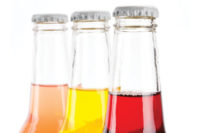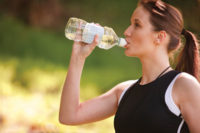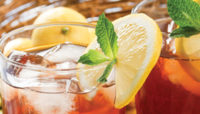Taxation on Beverage Purchases
A higher price on high-calorie beverages resulted in a 16% decline in sales.

“So a 20oz. bottle of a high-calorie drink cost 20 cents more than the same-sized container of low-calorie or zero-calorie beverages,” notes the newspaper. Jason Block, the study’s lead researcher, said that Harvard researchers “chose this amount because this is what public health experts say might be used as a tax on sugary beverages.”
Block said the higher price on the higher-calorie beverages resulted in a 16% decline in sales. For part 2 of the study, researchers stocked the beverages based on their calorie counts and added signage listing the calorie range. The result was an 11% sales decline for higher-calorie beverages.
"Both increasing the price of higher-calorie beverages and changing how we displayed them had a similar effect on decreasing sales of these drinks," Block told the newspaper.
"This (price) study is consistent with other research which shows that people are responsive to small price increases of one or two cents per ounce in sugar-sweetened beverages and will reduce their consumption of them,” Barry Popkin, a nutrition professor at the University of North Carolina-Chapel Hill, told USA Today.
Chris Gindlesperger of the American Beverage Association told USA Today that consumers generally “don't support taxes on soft drinks” and aren’t fooled by the idea that higher taxes will combat obesity.
“That's why the public policy debate has moved on from taxes and onto real solutions,” he said, adding that beverage manufacturers already include full calorie counts on the front of packaging. “We're empowering consumers to make the choices that are right for them, and providing them with an array of beverage options," he said.
Looking for a reprint of this article?
From high-res PDFs to custom plaques, order your copy today!






